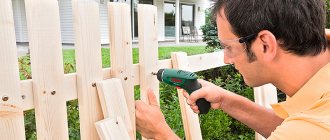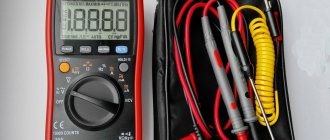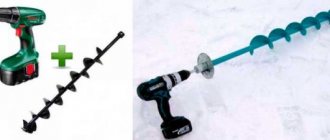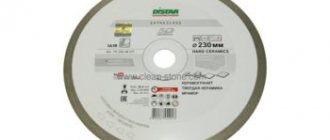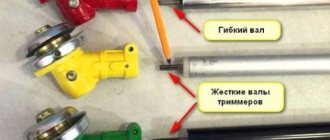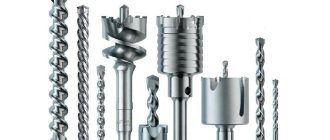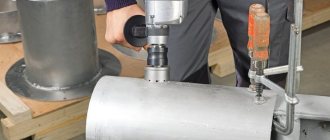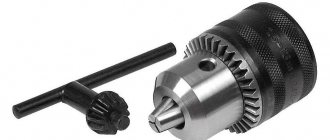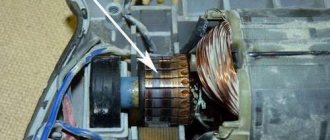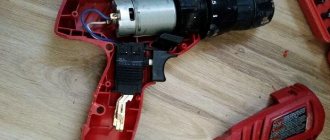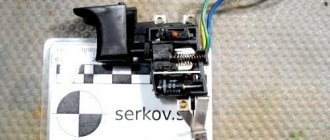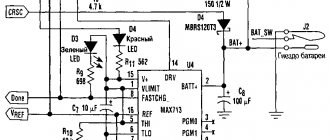A screwdriver is probably the most useful tool for the home. At least it comes in handy much more often than sanders or jigsaws. Choosing a decent machine is not easy, but we will not let you get lost in the sea of parameters and characteristics and will tell you how to choose the right screwdriver.
- What types of screwdrivers are there?
- Torque
- Power types
- Screwdriver battery voltage
- Battery capacity
- Battery type
- Types of cartridges
- The best screwdriver manufacturers
What types of screwdrivers are there?
Ordinary screwdriver
An average power tool in all respects, designed for tightening fasteners and, to a lesser extent, for drilling. It is usually equipped with a jaw chuck in which bits or drills can be fixed. Screwdrivers can be powered by mains or batteries and have different characteristics, but more on that below.
Electric screwdriver
The simplest and least powerful type of screwdriver. It is battery powered and has minimal functionality. As a rule, electric screwdrivers do not have a pulse mode, a speed switch, or even a jaw chuck - the bits are secured in a ¼” hex socket. However, there are adapters for other attachments.
Electric impact wrench
The ultimate purpose of this device is to replace a wrench in the same way that a screwdriver replaces a regular screwdriver. Usually the seat here is a tetrahedral rod designed for installing nut heads. Typically, impact wrenches can operate in a pulse mode, which allows you to unscrew even rusted and stuck bolts and nuts.
Drill/driver
The most powerful, heaviest, complex and, as a rule, expensive device in its class. This tool is capable of not only tightening a couple of screws, but also drilling concrete or, say, brick. Drill drivers operate at multiple speeds so you can choose between fastener handling and drilling modes. They are equipped with jaw chucks, a speed controller, reverse and impact mechanism.
A drill/driver with a hammer drill function can not only rotate the drill, but also deliver blows at the same time. This makes it much easier to make holes in hard materials, but such tools are also more expensive.
Which screwdriver is the best?
Which screwdriver should you choose: corded or cordless? Which one is better and more powerful?
We must admit: corded screwdrivers are already an endangered species.
Every year there are fewer and fewer of them on sale. Famous brands have practically stopped producing them (except perhaps for Makita and Hyundai); only Chinese manufacturers remain. Therefore, those who work in manufacturing or construction have problems buying a good corded screwdriver that they can rely on. Only such “niche” devices as drywall screwdrivers are not inferior to their positions. In this segment, corded tools are still more in demand than their cordless counterparts. Technologies have now advanced so much that cordless screwdrivers are almost in no way inferior to corded ones. They are just as powerful, but more convenient due to the lack of wires. The only thing that is still not encouraging is the price of cordless tools.
Corded drills and screwdrivers Makita DF0300 from RUB 3,815. Makita HP0300 from 4,040 rub. Zubr DSh-M3-500-2 from RUR 2,737 Sturm Professional ID2145P from RUR 2,904 Zubr DSh-M1-400-2 from 2,385 rub. Interskol DSh-10/320E2 220.1.1.00 from 2,588 rub. Zubr ZSSh-300-2 from RUR 2,990 Instar EDR 22650 from RUR 1,210 Interskol DSh-10/260E2 211.1.1.00 from 2,420 rub. Zubr DSh-M3-500-2 K from 3,409 rub. Stavr DShS-10/450-2S from 1,940 rub. Zubr DSh-M1-400 from RUR 2,033 Sturm ID2145PT from RUR 3,495 Tesla TDS450H from RUR 4,790 Pobeda DShS-475 from RUR 1,243 Hiper HES300A from RUR 1,692 Hanskonner HID2145PL from RUR 4,830 Instar EDR 61650 from 1,010 rub. Hanskonner HID2145P from RUR 3,529 DEKO DKSD500W 063-4053 from RUR 1,193
Which corded and cordless screwdriver should you choose? How powerful should it be so that it is enough for everything?
If a good drill must have a power of at least 500 - 750 W, then much more modest requirements are imposed on screwdrivers. In order to twist screws and self-tapping screws, a 300 W motor is almost always enough.
Manufacturers of cordless screwdrivers almost never indicate the actual power of their products. In the case of a battery-powered tool, it is better to talk about power classes that depend on the battery voltage. For example, in most cases we can confidently say that a screwdriver with an 18-volt battery is more powerful than a 12-volt one, and a 24-volt one has even more power. The question of the power of a cordless tool is discussed in more detail in the article “Which screwdriver is better: 12 V, 18 V or 24 V?”
In any case, whether it’s a corded screwdriver or a cordless one, it’s better to look not at the “power” column, but at the torque. It depends on him whether the tool can screw a large self-tapping screw into dense wood, or whether it can only do the “bugs” - small screws that fasten a thin metal profile. It is believed that a torque of 20 - 50 Nm is quite enough for a household screwdriver, and 75 - 100 Nm for a professional one. The highest torque is for screwdrivers with tangential impact; it can reach 150 - 200 Nm.
Cordless drills/drivers
Interskol DAU-13/18V 574.2.2.70 from 5,290 rub. Metabo PowerMaxx BS Basic 600080500 from RUR 5,547 Metabo PowerMaxx BS 600079550 from RUR 5,399 DeWALT DCD701D2 from RUR 10,882 Metabo PowerMaxx BS 600079500 from RUR 5,490 Makita DF333DWYE from 6,025 rub. DeWALT DCD791D2 from RUR 17,621 DEKO DKCD20FU-Li 063-4103 from RUR 3,090 Bosch GSR 12V-30 Professional 06019G9020 from 7,180 rub. Metabo BS 18 L 602321500 from 9,280 rub. Metabo PowerMaxx BS Quick Basic 600156950 from RUR 7,860 Metabo PowerMaxx BS Basic 600984000 from RUR 5,295 Metabo PowerMaxx BS Basic Set 600080880 from RUR 7,799 Bosch GSR 18V-50 Professional 06019H5020 from RUR 11,935 Interskol DA-13/18VK 575.2.2.70 from 3,750 rub. Metabo PowerMaxx BS 12 601036500 from RUR 7,134 Makita DDF485RF from RUR 11,105 Metabo BS 18 L BL 602326500 from RUR 11,690 DEKO GCD12DU3 063-4096 from RUR 1,572 Metabo BS 18 L BL Q 602327500 from RUR 13,698
How to choose a good screwdriver for your home? What functions should a tool have for working in a home workshop?
The best screwdriver for the home is one that can not only turn fasteners, but also drill like a drill. Such tools are called drills and screwdrivers. They are usually equipped with quick-release chucks (which can accommodate both round drills and hex bits) and two-speed gearboxes (one speed for working with fasteners, the second for drilling). Thanks to the combination of the functions of a drill and a screwdriver, the combined tool almost completely covers the needs of the home craftsman.
When purchasing a cordless tool, you should pay attention to the presence of a battery and a charger in the kit (however, the battery and chargers for the tool can always be purchased separately). Small screwdrivers usually run on 12 V batteries. These tools are not very powerful, but they are lightweight and compact, making them better suited for small hobby projects. Larger devices have 18-volt batteries with a capacity of 2 – 4 Ah. Eighteen volts is now considered something of an "industry standard" in the world of cordless power tools. For a home workshop, it is better to buy a drill/driver complete with one or two batteries. Pay attention to the battery type. Lithium-ion batteries (Li-Ion) are considered the best, while nickel-cadmium (Ni-Cd) and nickel-metal hydride (Ni-Mh) batteries are already obsolete. We talked about the difference between them in detail in the article “Main types of rechargeable batteries”.
Drills and screwdrivers
Interskol DAU-13/18V 574.2.2.70 from 5,290 rub. Metabo PowerMaxx BS Basic 600080500 from RUR 5,547 Metabo PowerMaxx BS 600079550 from RUR 5,399 DeWALT DCD701D2 from RUR 10,882 Metabo PowerMaxx BS 600079500 from RUR 5,490 Makita DF333DWYE from 6,025 rub. DeWALT DCD791D2 from RUR 17,621 DEKO DKCD20FU-Li 063-4103 from RUR 3,090 Bosch GSR 12V-30 Professional 06019G9020 from 7,180 rub. Metabo BS 18 L 602321500 from 9,280 rub. Metabo PowerMaxx BS Quick Basic 600156950 from RUR 7,860 Metabo PowerMaxx BS Basic 600984000 from RUR 5,295 Metabo PowerMaxx BS Basic Set 600080880 from RUR 7,799 Makita DF0300 from RUR 3,815 Bosch GSR 18V-50 Professional 06019H5020 from RUR 11,935 Interskol DA-13/18VK 575.2.2.70 from 3,750 rub. Metabo PowerMaxx BS 12 601036500 from RUR 7,134 Makita DDF485RF from RUR 11,105 Metabo BS 18 L BL 602326500 from RUR 11,690 DEKO GCD12DU3 063-4096 from RUR 1,572
In the catalog of drills and screwdrivers, you will notice that many tool models have additional functions and capabilities. For example, all drills and screwdrivers without exception have torque adjustment and reverse, and most of them have backlighting. Other options are less common. But they can be incredibly useful. For example, an additional handle, impact mode and depth limiter are essential if you plan to frequently drill into hard materials such as brick or foam concrete blocks. A case never hurts, because it is very convenient to store and carry a tool. Motor protection and safety clutch extend the life of the screwdriver. But functions such as display and synchronization with a smartphone look like “pampering”; they are unlikely to be useful to you while working in a home workshop.
How much does an average screwdriver cost?
“Medium screwdriver” is a very loose concept. As shown above, screwdrivers can differ greatly from each other. The price difference between corded and cordless devices is generally so large that the best corded screwdriver (the super popular Makita DF0300 with a price of about $70) costs less than one battery from a cordless one.
Among wireless models, there is also a wide range in prices, even within the same brand. The cost is influenced by the design of the tool and its configuration. For example, a small Makita DF330DWE screwdriver costs about $130, a more powerful Makita DDF343SHE model costs closer to $200, and a brushless Makita DDF485RFJ from the latest LXT line costs $300. And which of them can be called a “medium screwdriver”? All of them are neither budget Chinese nor “top” devices in their categories.
In general, we can say that among corded screwdrivers, the “average” ones are those that cost between $40 and $50. Devices from this price segment will not disappoint you with their quality if you are buying a tool for a home workshop. Battery models have a higher price. Here, “average” equipment is considered to be equipment that sells for $100–$200. This price segment includes the best models from “budget” brands with a good reputation and the simplest screwdrivers with nameplates of famous brands.
What is the difference between a brushless screwdriver and a brushed one?
Brushless motors are the most advanced version of electric motors found in hand tools. They appeared relatively recently, and so far they are only installed on “cool” screwdrivers. Brushless motors are better than conventional motors in almost every way. They are smaller, lighter, more powerful, more reliable and more efficient at using battery power.
The only thing holding back brushless motor screwdrivers from becoming more common is their price. For now, they are still much more expensive than tools with traditional brushed motors. Although professionals are gradually switching to brushless screwdrivers, buying them for home work is not always justified.
For a deeper dive into the world of modern brushless tools, we recommend reading the article “Brushless screwdrivers: why they are better than conventional ones.”
Brushless drills/drivers
Interskol DAU-13/18V 574.2.2.70 from 5,290 rub. DeWALT DCF887N from RUR 8,327 DeWALT DCD701D2 from RUR 10,882 DeWALT DCD791D2 from RUR 17,621 Bosch GSR 12V-30 Professional 06019G9020 from 7,180 rub. Bosch GSR 18V-50 Professional 06019H5020 from RUR 11,935 Interskol DA-13/18VK 575.2.2.70 from 3,750 rub. Makita DDF485RF from RUR 11,105 Metabo BS 18 L BL 602326500 from RUR 11,690 Metabo BS 18 L BL Q 602327500 from RUR 13,698 Interskol DAU-13/18V 574.4.1.70 from 6,600 rub. Elitech DA 18 UBL2 191608 from 6,390 rub. Makita DTD171Z from RUR 11,460 DeWALT DCD777D2T from RUR 13,630 DeWALT DCD791NT from 10,081 rub. Makita DDF485Z from 6,190 rub. Bosch GSR 18V-50 Professional 06019H5002 from RUR 5,704 Interskol DAU-13/18VK 573.2.2.70 from 5,387 rub. DeWALT DCD708N from RUR 7,445 Metabo BS 18 LT BL 602325550 from RUR 15,230
Impact or non-impact: which screwdriver is better?
Not all screwdrivers have a mechanism that allows the tool to operate in impact mode. To be honest, it is not always needed, and many can do without it if they do not plan to drill into brick walls or tighten large “crackers”.
But those devices that have such a mode are worth considering in more detail. The fact is that impact mechanisms are different.
- Axial impact occurs in drills and screwdrivers. This is a simple mechanism by which the tool slightly “chips” the tip of the drill bit, allowing holes to be drilled faster and more confidently in durable materials such as brick or foam concrete.
- Tangential impact occurs only with “clean” screwdrivers and impact wrenches. Such mechanisms are called pulsed. Due to the tangential impact, they briefly increase the torque to very high values (in the region of 150 - 200 Nm). This helps to tighten the fastener with very strong force.
Impact drills
Interskol DAU-13/18V 574.2.2.70 from 5,290 rub. DeWALT DCF887N from RUR 8,327 Interskol DAU-13/18V 574.4.1.70 from 6,600 rub. Makita HP0300 from 4,040 rub. Elitech DA 18 UBL2 191608 from 6,390 rub. Makita DTD171Z from RUR 11,460 Interskol DU-13/780ER 421.1.0.00 from 2,493 rub. Makita TD110DZ from 3,800 rub. Interskol DAU-13/18VK 573.2.2.70 from 5,387 rub. Bosch GDR 120-LI Professional 06019F0000 from RUR 3,853 DeWALT DCD996P2 from RUR 34,072 DeWALT DCF801D2 from RUR 16,390 DeWALT DCD996NT from RUR 13,690 DeWALT DCD706D2 from RUR 13,845 Vihr GS-1100 from RUR 4,851 Interskol DU-22/1200ERP2 330.1.0.00 from 5,932 rub. Makita HP457DWE from RUR 8,970 Makita DTD152Z from RUR 4,929 Interskol DAU-13/18VK 573.1.2.70 from 5,160 rub. Bosch GSB 12V-30 Professional 06019G9120 from 8,186 rub.
How to choose a screwdriver for working on metal, brick, wood?
We buy different drills for working on metal, wood and concrete because we understand that these materials have different characteristics. You need to approach the choice of a drill-driver in approximately the same way. If you plan to drill metal, then buy a tool that, even under load, can maintain a chuck rotation speed of around 1000 rpm. Even simple and not very powerful drills and screwdrivers are suitable for working with wood (but if feather drills or large crowns are used, a lot of torque will be required). And for drilling brick and concrete, the fundamental issues are the presence of an impact mode, the ability to install an additional handle, as well as the efficiency of engine cooling and the quality of protection of the tool from getting abrasive chips inside the body.
Which brand of screwdrivers is better: Bosch, Makita or Metabo?
There aren't many big names in the world of power tools, and they're all household names. The best screwdrivers are produced by DeWALT, Metabo, Makita, AEG and Bosch (we are talking about the “blue” series). They all have an excellent reputation and provide a good guarantee on their products. The instruments of these brands are considered professional or semi-professional.
Among other companies, manufacturers such as Festool and Milwaukee deserve attention. They are widely known all over the world, but their products are not very common on our market.
We will not campaign in favor of this or that brand. The companies listed above are at approximately the same technological level and top the ratings in all reviews. When choosing a cordless screwdriver, you should take into account the compatibility of its battery with batteries for tools that you already have at your disposal or that you plan to buy in the future. Therefore, setting up a “zoo” of tools of different brands and systems in the workshop is not entirely appropriate.
Which brand of screwdriver is best to buy for your home?
For weekend work in a home workshop, it is not advisable to buy a professional tool; it is better to take a household screwdriver from the middle price category. He will not “eat up” the family budget, but at the same time he will be a reliable and faithful “helper”.
Companies that produce good household-grade screwdrivers include Ryobi, Bosch (“green” series), Hitachi, Black & Decker and Stanley. You can also pay attention to the inexpensive “red” Makita (aka Maktec) or products from Hyundai, Einhell and Yato. All of the listed manufacturers have service centers in our country, and spare parts, components and accessories for screwdrivers of these brands can be purchased freely and inexpensively.
The products of these brands are called “household tools” because they are designed for less intensive use than professional screwdrivers. The difference is that household tools use simpler (and less expensive) parts: motors, bearings, seals, gears, electronic components, etc.
How to distinguish a real Makita or Bosch screwdriver from a fake?
For a non-specialist, it is quite difficult, almost impossible, to distinguish a real branded power tool from a high-quality fake. Swindlers and “pirates” have long learned not to make mistakes in the Bosch, DeWALT and Makita inscriptions and not to completely hack things. The difference between the original and the fake, as a rule, becomes obvious only during operation, when the “plasticine” gears begin to “crumble,” weak bearings overheat and jam, and motors with windings made of low-quality copper burn under load.
Therefore, the only sure way to avoid running into a fake is not to buy tools at construction markets and in underground passages. It is better to order it from large and well-known online stores that work directly with manufacturers or importers. In this case, you will have an official guarantee and confidence that you will be refunded for a defective product.
Is there any reliability rating by which I can choose a screwdriver?
In our catalog, the rating of screwdrivers is formed automatically based on user interests. In it you can see which brands and models are in greatest demand, as well as which features and configurations are of interest to buyers. Reviews of screwdrivers left by real users who bought the tool allow you to form your own opinion about the reliability of a particular device and learn more about its advantages and disadvantages. Users leave the most favorable reviews about screwdrivers from professional tool lines, because they have a long service life, good maintainability, an official warranty (usually from 3 to 5 years), and spare parts for them are easy to obtain.
So which screwdriver is better?
Alas, there is hardly a clear answer to the question asked in the title of the article. It is impossible to choose just one screwdriver, because each of them has its own advantages and weaknesses. Some models win in power and torque, others in battery life, and others in price. The choice depends on the purpose, volume of work and your preferences. You can read articles and reviews describing the TOP 5 screwdrivers in different categories and “nominations” in the corresponding section of the site.
If you prefer video rather than text, then watch our video on how to choose the right screwdriver.
Torque
This parameter is measured in newton meters (Nm). It shows how much force the tool is capable of: how thick the screw is and how deep the device can screw. Most screwdrivers have a torque in the range of 10-50 Nm, although it can be higher.
There are different types of torque (soft, hard, maximum, long-lasting), and manufacturers do not always indicate a specific one, so you can only focus on this parameter in conjunction with other characteristics.
Why do you need a screwdriver and what tasks does it perform?
Maintaining comfortable living conditions in a house or apartment means constantly making small repairs. Power tools make work easier. One of these “helpers” was a screwdriver. It copes with the following frequently encountered tasks:
- Installation work using self-tapping screws, screws.
- Drilling holes in walls, doors, furniture.
- Installation or removal of fasteners (dowels or anchors).
Important! Light weight and autonomy in operation are the advantages of the tool.
Power types
Most household screwdrivers run on electricity. Hydraulic and pneumatic tools require specific power and are almost never found outside the professional sphere.
Electric screwdrivers can be battery-powered or mains-powered.
Corded screwdrivers operate, as you might guess, from an electrical network. If you have an outlet at hand, this is much more convenient than batteries that always run out, but when there is no electricity, problems begin: either the wire is too short, or the lights are turned off.
Cordless screwdrivers are convenient because they are not tied to an outlet. They can be used where there is no electricity: in the country or in a house under construction. True, they are heavier and more expensive than their network counterparts. In addition, there are a couple of points that must be taken into account when choosing a cordless screwdriver.
How to choose a device
To choose a screwdriver, you first need to familiarize yourself with what this type of tool is used for - for professional or domestic purposes, and what work can be performed with its help.
When purchasing, some rely on knowledge of the technical characteristics of the device, while others prefer to hear advice from the seller. Some people pay attention to a well-known brand and use advice from the World Wide Web. Personal experience, advice from professionals, and knowledge of the technical parameters of devices will help you choose a screwdriver that will become an indispensable assistant in housework.
Subscribe to TechnoCouncil on social networks so you don’t miss anything:
Battery type
In screwdrivers, as in other electronics, there are three types of batteries:
- nickel-cadmium;
- nickel metal hydride;
- lithium-ion.
Nickel-cadmium batteries are the oldest, most reliable and inexpensive. They are not afraid of low temperatures and complete discharge. At the same time, nickel-cadmium batteries are far from today's ideas about environmental friendliness. So much so that in some countries they are banned from use altogether. Plus they are quite heavy. But their main problem is the memory effect. That is, if you do not fully discharge the battery and put it on charge, the battery will, as it were, remember this charge level and in the future will not be discharged to the end, but to this point.
Nickel-metal hydride batteries are more modern: they are less toxic, do not suffer from the memory effect and can withstand one and a half times more charge-discharge cycles than their nickel-cadmium ancestors. At the same time, such batteries cannot be used in cold weather; they discharge faster, take longer to charge, do not tolerate complete discharge well, and are more expensive. In general, we can say that they are more capricious than their analogues.
Lithium-ion batteries are becoming increasingly common today. They are not familiar with the memory effect, do not lose charge at rest, charge quickly, and from any stage of discharge - without loss of capacity, are non-toxic, compact and last a long time. True, they need to be handled carefully: lithium-ion batteries can explode from impacts, and break from overcharging or complete discharge. They run out quickly in the cold and are quite expensive.
To choose a specific battery type, be guided by operating conditions. For the home, the most universal solution will most likely be a nickel-cadmium battery, and for professional use - a lithium-ion battery.
Technical specifications
To know why you need a screwdriver and how to use it, you should first know its technical characteristics. The most important parameters of the tool include:
- Torque - shows the force developed by the tool when rotating. Helps determine the maximum screw-in fastener size or diameter when drilling various parts.
- Rotation speed - the lower the spindle speed, the denser the material that can be drilled. At lower speeds you can get a hole with a larger diameter.
- Chuck type - there are key, hex shank and quick-release chucks.
- Weight - a heavier power tool is more powerful, and is more often used as a drill to work with materials of increased density. To screw in or unscrew self-tapping screws, lighter weight models are used.
- Impact function - used when working with concrete or brick walls.
- Pulse mode - used for “unyielding” fasteners.
Types of cartridges
A chuck is a part of a screwdriver that is designed to hold bits, drills and other attachments. Cartridges can be of several types.
The key chuck perfectly holds the bit or drill, which definitely won’t go anywhere without the key. The key, in fact, is the problem: without it, you can neither install nor remove the nozzle, and the process is not quick. Lost the key - work stopped. Reliable, but slow and inconvenient.
The quick-release chuck allows you to install attachments without a key. This is much faster and more convenient, but the reliability of fixing the drill directly depends on the effort applied. Over time, the cams will begin to wear down, and round drills will begin to turn because of this. This problem can only be solved by replacing the cartridge with a new one.
The self-clamping chuck secures the attachment independently, without the use of force - you just need to turn the coupling.
The bit chuck is designed exclusively for bits, is not suitable for drills and is not universal at all.
What is the best battery for a screwdriver?
The list of batteries for screwdrivers is small. All of them deserve attention, but you need to choose here based on your preferences.
Types of batteries
- Li-ion (lithium-ion). Low discharge level, no “memory effect”. Inexpensive, suitable for all areas of activity.
- Ni-Cd (nickel-cadmium). They are more expensive and have a weak “memory effect”.
- Ni-Mh (nickel metal hydride). The most expensive ones, you can work in low temperatures.
The best screwdriver manufacturers
There are many manufacturers of screwdrivers. But among them there are several companies whose products can be trusted almost without reservation.
Bosch is a well-known German brand under which household appliances, electronics and power tools have been produced for almost a century and a half. Known for its high-quality and reliable products, albeit quite expensive. Bosch tools are differentiated by color: green housing means a home model, blue – a professional one.
Makita is a popular Japanese company. Their products are distinguished by ergonomic shapes and compact sizes - this applies to both professional screwdrivers and simpler home models.
Dewalt is a manufacturer from the USA. Screwdrivers under this brand are distinguished by high power, reliability and safety in use. The company does not skimp on LED lighting, rubberized handles and self-clamping chucks, even in its not the most expensive models.
Black&Decker are another American. Among manufacturers of high-quality power tools, this company produces probably the most inexpensive products. That, however, does not prevent them from making decent instruments.
Huyndai , a specialized division of the Japanese auto giant, entered the market relatively recently, but has already established itself as a first-class product. It produces both home and professional models: under the Home and Expert brands, respectively.
Interskol is a Russian manufacturer that is in no way inferior to foreign competitors in terms of the quality, convenience and functionality of its tools. Prices, in turn, are very affordable.
Zubr is another company from Russia whose screwdrivers have a good price-quality ratio. Home appliances are produced under the “Master” brand, “Pro” tools are intended for professional use, and “Expert” tools are intended for specialized, narrow-profile work.
Types of screwdrivers by purpose
There are household and professional tools:
- The former are used when working with soft and pliable materials - plasterboard or wood. With their help, they repair home furniture, attach shelves, and repair windows and doors.
- More powerful, professional power tools are needed for drilling materials of increased hardness and density. They have a high rotation speed (up to 1300 rpm) and increased torque (this makes them more powerful).
Screwdrivers are also divided according to the type of power supply:
- Network - power supply 220V.
- Rechargeable - self-powered.
Important! Using tools without power supply is more convenient. You can work anywhere and anytime.
Popular questions
Which screwdriver should you choose, 14 or 18 volts? The battery voltage may indirectly indicate the power of the screwdriver, although there are low-voltage batteries with high power, and not very powerful high-voltage models. So keep in mind that higher voltage means more weight and more price, but not always more power. In general, for home use, a tool with a 12-14 volt battery is quite sufficient; 18 is already quite a lot.
Impact wrench or screwdriver, which should you choose? It all depends on what tasks you face. A wrench is a special case of a screwdriver, a specialized device designed to work with nuts and bolts. It usually does not have a jaw chuck or speed selector, but does have a square nut and bolt socket mount and a tangential impact mode. Screwdrivers can be very different, but often they are much more universal devices: with a clamping jaw chuck, several operating speeds, and sometimes with the functions of a drill or hammer drill.
Which drill/screwdriver to choose and what to pay attention to
There are several signs by which it is possible and should be selected.
What to choose and how among drills and screwdrivers (DS)? Key parameters: appearance, functionality and the presence of certain modes, customization and controls.
ergonomics
The best work is when it is convenient and comfortable. Therefore, the ergonomics of the motorized motor is one of the first factors in the selection. Already when you take it in your hand, it will become clear whether it is easy for your hand to hold the instrument and whether you can reach the required buttons with one hand.
The shape should be as streamlined as possible, the color should be bright for quick search and easy identification of damage to the body and handle. The pistol-type design can be either classic or with a handle slightly shifted forward (the angular placement of the cartridge is purely individual and not universal). A cordless screwdriver is the most ergonomic.
The handle can be inclined or at a right angle, and the battery is placed under it. The balance is only visible with the replacement tip installed. The grip is reinforced by the surface of the handle - a rubberized or rough surface will ease the effort by creating friction.
brushless motor
The main feature of this type of motor is the motor without brushes (brushless type). Failed brushes, which serve to switch the electric current, are replaced by an electronic control unit.
A brushless motor has the following list of pros and cons.
Pros:
- simple rotation adjustment and change over a wide range;
- absence of brushes and the need for regular replacement, long-term operation;
- profitability and high efficiency;
- lack of sparking and operation in dusty conditions and in mixtures of explosive gases;
- reduced size and weight;
Minus:
- the cost is higher than other designs.
When powered by a battery, the service life of a brushless motor will be longer. Despite all the advantages, budget limitations often force one to bypass such models.
screwdriver chuck
There are several types of cartridge, each of which is well suited for a specific specific purpose.
The most common are the following:
- quick-clamping (BZP) - classic structure (spindle, sleeve, collets), no key required: the most wear-resistant and reliable, drills with a round shank require more force than usual;
- self-clamping or SDS chuck - you don’t even need muscle force to tighten it: the tool will cope with the job when quickly changing attachments thanks to a structure made of balls that hold the shank by the recesses in it;
- hexagonal - perfect for bits as an attachment with a corresponding shank: suitable for screwdrivers, mini-drills, drills;
- bit chuck – a chuck for bits: needed for removing (unscrewing) fastening hardware, most convenient at home.
The chuck captures a working element, the shape and purpose of which can be different - up to such a solution as a pump for a drill or even a jigsaw.
Rotation speed adjustment
The rotation speed of the working tool is controlled manually or automatically.
Manual adjustment is performed mechanically. For this purpose, the body must have control elements - a button or switch, after operation of which the rotation speed changes. This is relevant for 18 V DC motors.
Automatic adjustment is carried out through the operation of the built-in processor. The signal received from the regulator or toggle switch enters the processor. It, in turn, sets the engine operation and the required rotation speed.
There is also adjustment by pressing the start button. The bottom line is that the harder you press the button, the faster the number of revolutions will be. In this case, both the force and depth of pressing the button play a role. The power supplied to the spindle and working tool will increase in direct proportion to them.
shock mode
The shock mode function is not the main one for the DS. Therefore, there is no need to overpay for additional unnecessary equipment - a shockless device will be enough for torsion. It is necessary to determine the conditions of use and target materials.
The essence of the shock mode is that normal rotation is supplemented by reciprocating movements in the direction of the rotation axis. A special mechanism made of high-strength materials ensures impact - creating a high number of impacts per unit of time. Thanks to this, it becomes possible not only to tighten hardware, but also to create holes in solid materials - stone and concrete.
The benefit of impact models of the DS lies in their compactness, which allows you to abandon a separate impact drill in some cases, replacing it with one screwdriver. The mode does not affect the diameter of the cartridge.
engine brake
One of the most popular additional functions is the ability to stop the engine. The value when choosing a tool with a brake function is that when tightening screws or self-tapping screws, there often comes a moment when further movement of the hardware is strictly prohibited, and inertia is inevitably present when the engine is running. As a result, while the engine still makes a couple of revolutions of the tool after the “stop” command, the self-tapping screw has time to go deeper by a couple of millimeters.
In addition to ensuring the safety of surfaces, this function is useful in withstanding the tightening force. The risk of overtightening is significantly reduced; the materials being joined will not crack due to the excessive deepening of the hardware.
The difference from the operation of a conventional mechanism is that the engine stops instantly after releasing the start button.
manufacturer's warranty
The sold drill-driver and its kit, placed in the case, are issued a warranty from the manufacturer. However, things are not so simple with her.
The warranty itself is determined by the terms of use. As a rule, it is written in the instructions or on the packaging that the warranty does not apply to devices that contain internal contamination, which were not repaired in a specialized service workshop and (or) which were subjected to significant shock impacts.
Internal contamination is a logical companion to any electrical appliance and tool for working with materials. In any case, dust and particles of materials will get inside the case, where cleaning is almost impossible - the warranty is at risk.
Repair outside the service is an understandable requirement, because only a specialist trained in the intricacies of working with the brand can adequately perform the restoration.
As for the impact of shock loads on the instrument, everything is simple. No matter how straight the master’s hands are, in any case, over a long period of work, something falls or hits the instrument, damaging the body - therefore, the closure of the warranty will sooner or later happen beyond the desire of the master.
safety clutch
Due to the fact that the drill-driver is characterized by a high speed of the working body and even a considerable torque in some models, when the tool suddenly stops or gets jammed in the material, a situation arises when the engine itself suddenly stops. This is unacceptable due to high overloads and the risk of critical damage to the heart of the DS.
The presence of a safety clutch (or release clutch) allows you to disconnect the engine and gearbox when stopping the working tool. This leads to continued free rotation of the shaft and preservation of engine performance.
The clutch can be combined with a downforce regulator. Usually installed on models with power over 12 V.
